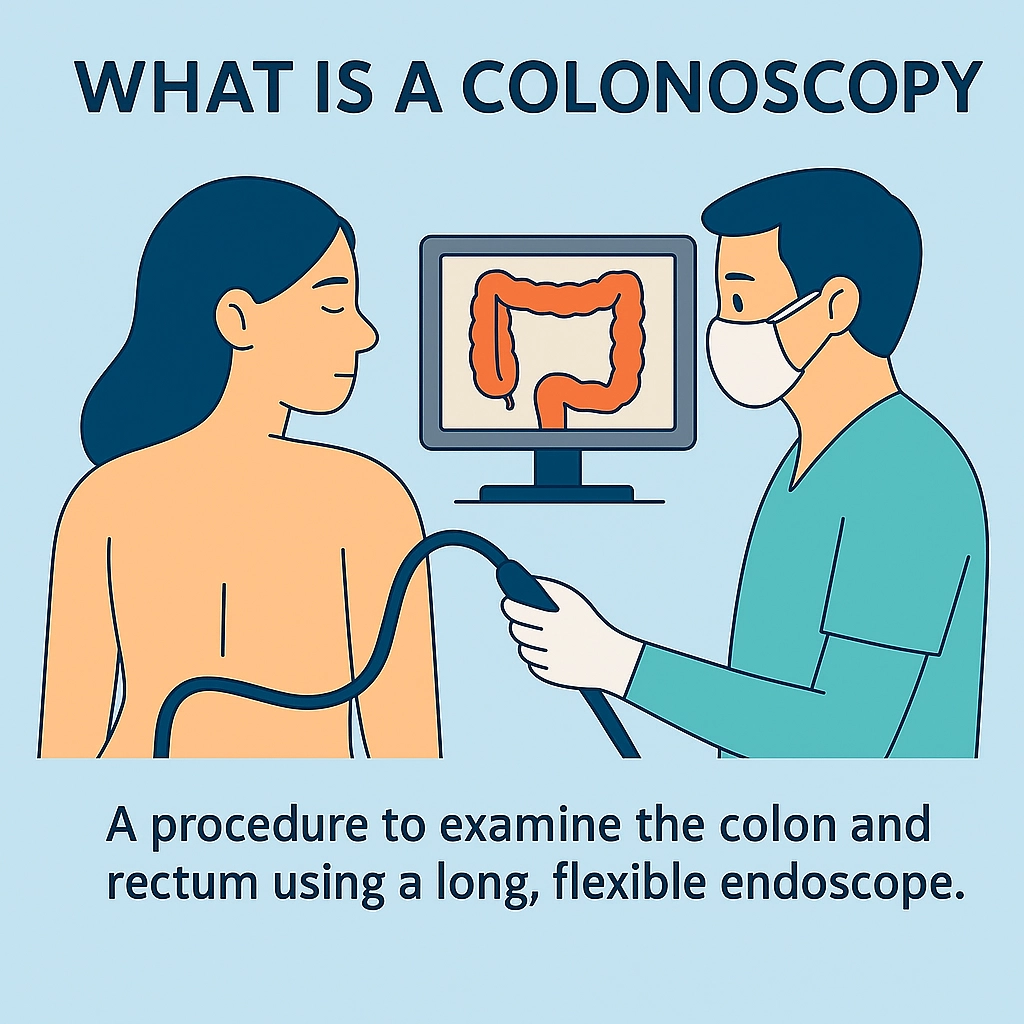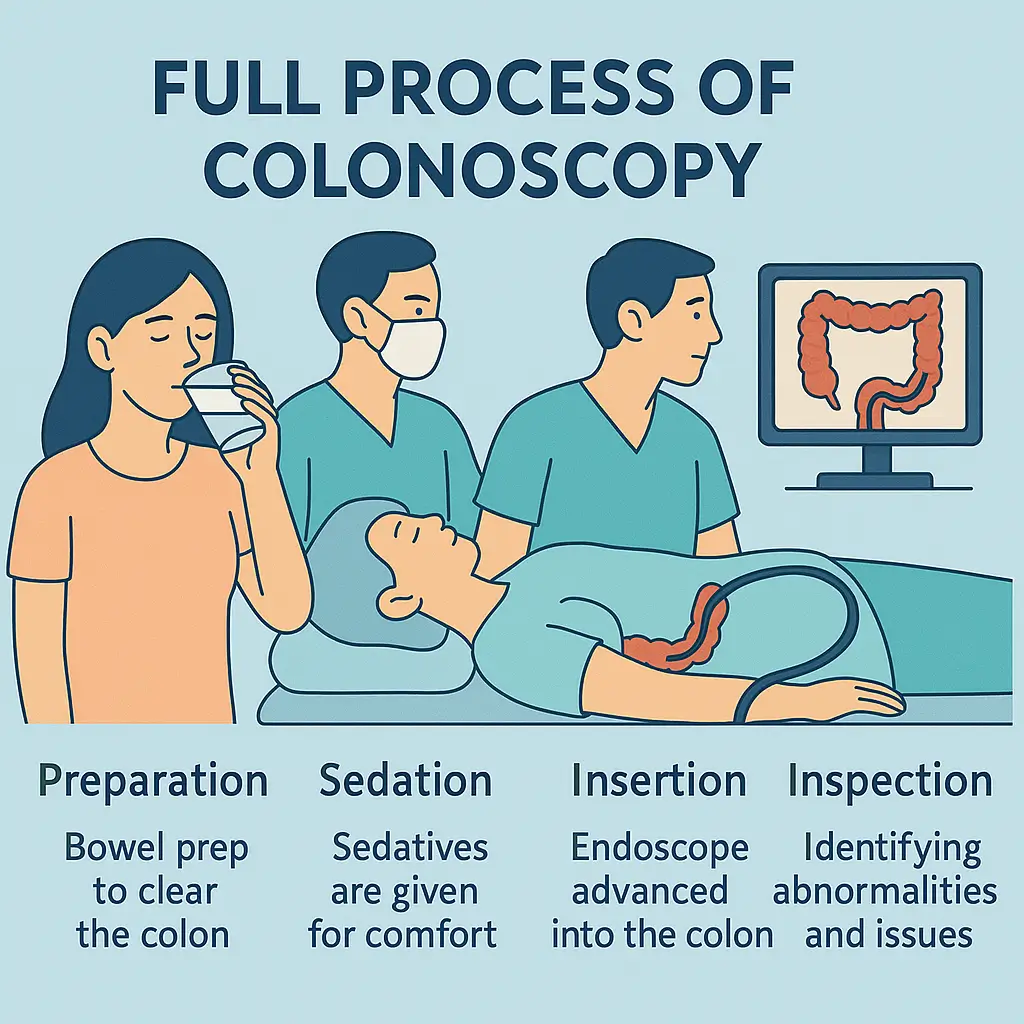Colonoscopy
Looking After Your Bowel Health
What is a Colonoscopy?
A colonoscopy is a gentle, common way to check inside your large bowel (colon and rectum). We use a slim, flexible tube with a tiny camera to spot things like:
- Bowel cancer or polyps (growths that could turn into cancer)
- Inflammation from conditions like Crohn’s disease or ulcerative colitis
- Diverticular disease (small pouches in the bowel)
- Bleeding or diarrhoea with no clear cause
- Tummy pain or changes in bowel habits
The procedure usually takes about 20 to 30 minutes to complete but this can be highly variable depending on the findings. We will then review you before you go home and let you know of the examination findings and the follow up plan.

How We Help You
At South East Gastroenterology & Endoscopy, we’re focused on making your Colonoscopy easy and stress-free. Here’s what you can expect:

Understanding Your Needs
We listen carefully to your symptoms and health history. We will explain if a colonoscopy is the best option and answer your questions.

Comfortable Experience
We are set up to keep you at ease. We use sedation so you’re relaxed and pain-free during the procedure.

Finding and Removing Polyps
If we see polyps, we can often take them out right away to prevent future issues.

Clear Answers and Next Steps
After the colonoscopy, share what he found in simple terms and work with you on any follow-up care.

Full Process of Colonoscopy
Make sure you get to the Day Procedure Centre or Hospital right on time for your appointment.
It’s a good idea to bring something to read or do, as you’ll arrive a bit before your procedure starts. You’ll need to sort out some admission paperwork and pop on a hospital gown. We do our best to keep things moving, but medical procedures can be unpredictable, so there might be a bit of a wait if things get complex.
You’ll likely spend about 3–4 hours at the hospital or day centre, though this is just a rough guide. We’ll give your “pickup person” a call to let them know when you’re ready to be collected. Before the procedure, you’ll chat with Dr Desmond and the anaesthetist. You’ll be given a sedative through a small tube (cannula) in your vein to make you sleepy and comfy—this isn’t a full general anaesthetic, but you’ll be out of it and relaxed.
During the colonoscopy, a lubricated scope is gently inserted through your anus into the large bowel, reaching the spot where it meets the small bowel (ileo-caecal region), and sometimes even a bit into the small bowel (ileum) to check for issues like Crohn’s disease. As the scope is slowly pulled out, Dr Desmond carefully checks for polyps (which can often be removed on the spot if safe), inflamed areas, or anything else unusual, taking tiny biopsies if needed. The procedure usually takes 20–30 minutes, but it can vary. Afterwards, Dr Desmond will go over the findings with you and explain the next steps before you head home.

Book Your Colonoscopy Today
Frequently Asked Questions
What Signs Should I Watch For?
Not sure if you need a Colonoscopy? If you’re dealing with blood in your poo, changes in your bowel habits (like constipation or diarrhea), tummy pain, or feeling worn out for no reason, a colonoscopy can help figure things out. It’s also important for checking bowel cancer or polyps, especially with a family history or a positive stool test. Dr Desmond will review your situation to see if it’s the right step.
How Do I Prepare?
Please follow the patient instructions, which require you to fast (not eat or drink) and take your bowel preparation.
Please do not bring valuables with you. Wear loose/comfortable clothing as you will be required to change.
Bring your private insurance and Medicare details with you.
Contact details for your nominated pick up person will be required. Some medications may need to be discontinued before colonoscopy. Please refer to the Diet Instructions Page.
What happens on the day of the procedure?
Ensure that you arrive at the Day Procedure Centre/Hospital at your designated time.
It is recommended that you bring along something to read or do as your arrival time is prior to your procedure time. You will be required to confirm admissions details and change into a hospital gown. Whilst every effort is made to not keep you waiting too long medical procedures are unpredictable and sometimes more complex than anticipated.
It is expected that the average time spent at the hospital/day procedure centre will be between 3-4 hours However, that time frame is only a guide. Your “pickup person” will be telephoned and advised of your anticipated collection time.
After consultation with Dr Desmond and the anaesthetist you will be sedated (made sleepy) by a qualified anaesthetist who injects a sedative via a cannula (tiny hollow plastic tube) inserted into a vein. This is not a general anaesthetic but the patient is asleep and comfortable.
A lubricated colonoscope is then passed through the anus into the large bowel and is carefully advanced to the deepest part of the large bowel where it meets the small bowel (ileo-caecal region). Often the scope is passed into the last part of the small bowel (ileum) where some diseases such as Crohn’s disease can be localised.
Careful inspection is then undertaken as the scope is slowly withdrawn. Polyps that are seen are removed at the time if it is safe to do so. Any other areas of concern, such as inflamed bowel or suspected cancers can be biopsied (small “pinch” of tissue removed) to allow examination under a microscope.
The procedure usually takes about 20 to 30 minutes to complete but this can be highly variable depending on the findings. Dr Desmond will then review you before you go home and let you know of the examination findings and the follow up plan.
What happens after the Colonoscopy?
After the procedure you will be taken to the Recovery Area until any sedation given during the procedure has worn off. When you are awake, Dr Desmond will review you and explain the results of the examination to you. You will be given discharge instructions, including when to make a follow-up appointment.
After something to eat and drink you will be able to go home. You are not allowed to drive home, ride a bike or operate dangerous machinery for the rest of the day/night. Do not sign any legal documents or drink alcohol during that same period of time. On the morning of the following day you can resume all normal activities.
Is It Safe?
All activities carry some risk including driving a car. Any medical procedure is no different, however this procedure is a low risk procedure.
The most common complaint after a colonoscopy is a sensation of feeling bloated. This is caused by air that was blown into the bowel to enable good views of the bowel lining. This usually clears quickly.
Bleeding can occur after polyps are removed or rarely after biopsies are taken. ln polyp removal bleeding can occur up to 2 weeks after the procedure. lf you have any concerns that you may be bleeding after a procedure, contact Dr Desmond’s rooms or proceed to your closest emergency department
Infections following a colonoscopy are exceedingly rare due to the strict cleaning procedures undertaken on the equipment after each procedure.
Perforation after colonoscopy has been quantified at 1/1000 cases for standard colonoscopy. Removal of larger polyps increases this risk. ln the case of a perforation it is possible surgery may be required.
Occasionally a complete colonoscopy may not be possible (the ability to examine the whole length of the large bowel). Reasons for the increase in possibility of incomplete colonoscopy includes previous abdominal surgeries leading to scar tissue and diverticulosis (benign pockets forming in the colon), among other causes. If a complete colonoscopy cannot be performed, a CT colonoscopy (special X-Ray) can usually be done on the same day to examine the rest of the colon.
What Happens If They Find Polyps?
If we find polyps during your Colonoscopy, there’s no need to stress. Polyps are pretty common, and we can often remove them on the spot to stop any problems later. Dr Desmond will explain everything clearly and let you know if you need extra checks or small changes to stay healthy.








